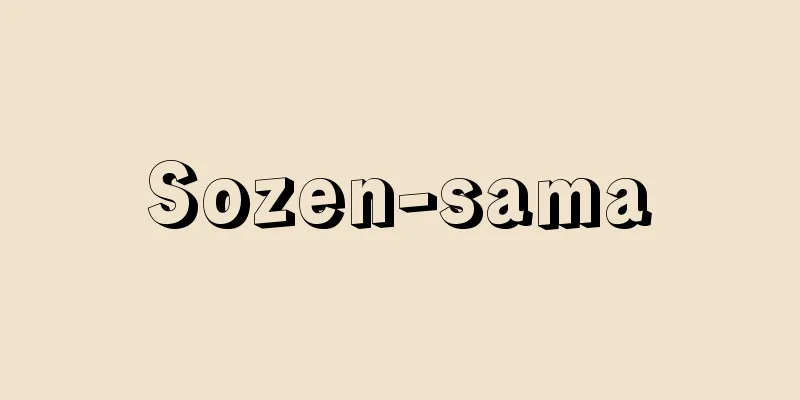Poporo Incident - Poporo Incident

|
This incident occurred on the campus of the University of Tokyo and involved "university autonomy." On February 20, 1952, the student theater group Popolo performed a play based on the Matsukawa Incident in a classroom at the University of Tokyo. Students discovered three plainclothes police officers in the venue, assaulted them, and took away their police notebooks. The next day, police entered the campus without notifying the university authorities and arrested the students. From the notebooks taken by the students, it became clear that the police had been collecting information on the activities and ideological tendencies of students, faculty, and other staff over the long term. The incident developed into a struggle to protect academic freedom, opposing the revival of the prewar Special Higher Police. In the National Diet, President Yanaihara Tadao argued in defense of university autonomy and claimed that the police's actions were unjust. On the other hand, the trial of the students for "assault" lasted 21 years and produced a total of six verdicts. This trial was fought over the interpretation of "student autonomy," and the students were found not guilty in the first trial (1954) and second trial (1956). However, after the case was remanded to the Supreme Court (1963), the Tokyo District Court found them guilty (with suspended sentences) in 1965, and in 1973 the Supreme Court rejected the appeal, finalizing the students' guilt. [Yuji Odabe] "The Popolo Incident - The Black Diary Speaks," edited by Shigeki Toyama and Yozo Watanabe (1964, Shinko Publishing) " "The Popolo Theater Incident - University Autonomy and Police Power," by Isao Sato (included in Postwar Political Trial History Records 2, edited by Jiro Tanaka, Isao Sato, and Jiro Nomura, 1980, Daiichi Hoki Publishing)" Source: Shogakukan Encyclopedia Nipponica About Encyclopedia Nipponica Information | Legend |
|
東京大学構内で起きた「大学の自治」にかかわる事件。1952年(昭和27)2月20日、東京大学の教室で学生劇団ポポロが松川事件に取材した演劇を上演した際、会場に私服警官3名が潜入しているのを学生が発見、「暴行」を加えて警察手帳を取り上げたとして、翌日警官隊が大学当局への連絡なしに構内に入り、学生を逮捕した。学生が取り上げた手帳から、警察が長期的・恒常的に学生・教職員等の活動や思想傾向に関する情報を収集していたことが明らかとなり、事件は、戦前の特別高等警察の復活に反対し、学問の自由を守る闘争へと発展した。国会では矢内原忠雄(やないはらただお)総長が大学自治擁護の論陣を張り、警察の行為の不当性を主張した。 他方、学生の「暴行」を訴えた裁判は21年に及び合計六つの判決を生んだ。この裁判は「学生の自治」の解釈をめぐって争われ、一審(1954)と二審(1956)では学生無罪の判決であったが、最高裁差戻し(1963)ののち、1965年東京地裁で有罪(懲役・執行猶予)となり、73年、最高裁上告棄却により学生の有罪が確定した。 [小田部雄次] 『遠山茂樹・渡辺洋三編『ポポロ事件――黒い手帳は語る』(1964・新興出版社)』▽『佐藤功著『ポポロ劇団事件――大学の自治と警察権』(田中二郎・佐藤功・野村二郎編『戦後政治裁判史録2』所収・1980・第一法規出版)』 出典 小学館 日本大百科全書(ニッポニカ)日本大百科全書(ニッポニカ)について 情報 | 凡例 |
<<: Popolo d'Italia (English spelling)
Recommend
Joseph Albers
American painter. Also known as Albers. Born in B...
Lymphangitis - Lymphangitis
What is the disease? Inflammation of lymphatic ve...
Sodium Acetate - Sodium Acetate
CH 3 COONa (82.03). The trihydrate is obtained by...
Ischemic contracture
This is a condition in which muscle tissue is seve...
Lord Okinaga Yamada - Lord Okinaga Yamada
...There is also a strong theory that they were i...
Exudative central retinopathy
…Currently, the most effective treatment is photo...
Silkworm - Silkworm
A perennial plant of the lily family (APG classif...
Hayashi Fubou
Novelist. Born in Sado, Niigata Prefecture. His r...
Giant anchor sea cucumber - Giant anchor sea cucumber
It is a marine animal belonging to the phylum Ech...
Exoskeleton
As opposed to an internal skeleton. It refers to t...
Yoneichi
A Kyogen piece title. Zatsu Kyogen. On New Year&#...
Scott, Ridley
Born November 30, 1937 in Durham, England. Scott i...
Diomedea exulans
... There are two genera and 14 species of albatr...
Alecto
…For several decades, paddle ships replaced saili...
Black Sawajiri - Kurosawajiri
The central city of Kitakami City in southern Iwat...









